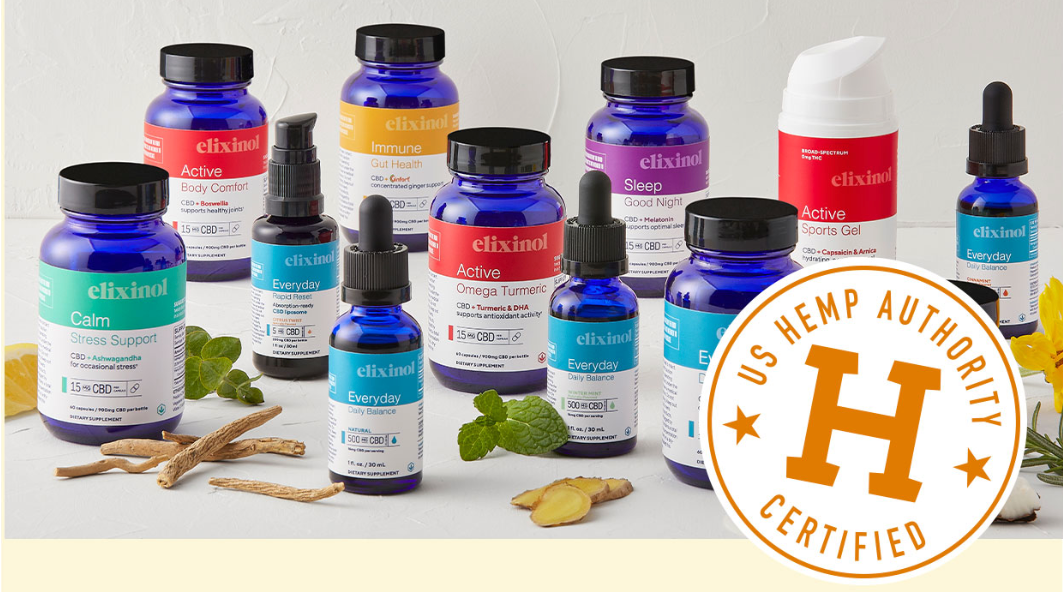It’s unfortunate that in this day and age, the mere mention of CBD is still met with such apprehension and misunderstanding. No matter how many people incorporate CBD into their daily wellness regimens, no matter the number of CBD pop-up shops in small-town USA—and no matter that cannabis is fully legal across much of North America—the first question so many people keep asking is, “Will CBD Get You High?”
The short answer is no—CBD will NOT get you high. In fact, if you know and understand what CBD is, you can appreciate how it’s impossible to get “high” from CBD. For those who don’t know the difference between CBD and THC, or the semantic (and legal) differences between cannabis, hemp, and marijuana, then now is a good time to educate yourself and debunk some of the myths around CBD.
Will CBD Get You High?
“Will CBD get you high?” No—CBD cannot get you high, but don’t feel too silly for asking. It’s an important question and something you should be sure about before trying CBD. The reason for this common question is because CBD and THC are both natural compounds that come from cannabis plants, albeit with very different effects. Given the longstanding prohibition and the way we talk about cannabis, it’s understandable that some confusion remains.
To clarify, all CBD is derived from cannabis plants, yes, but CBD does not cause any of the intoxicating effects associated with THC, which is also derived from cannabis plants. The semantic differences have evolved so that now we refer to marijuana plants when discussing cannabis grown specifically for THC, versus hemp plants, which are cannabis plants grown primarily for CBD.
The Food and Drug Administration defines CBD as a cannabis compound derived from hemp plants which contain less than 0.3% THC. This is the legal definition of hemp plants (which cannot get you high), even though biologically speaking, hemp, cannabis, and marijuana are all the same plant. We call them different names today in order to differentiate between cannabis plants grown for THC versus plants grown for CBD.
How CBD Works
The human body features an entire regulatory network (called the endocannabinoid system) which reacts specifically to CBD, as well as other cannabinoids (natural chemical compounds found in cannabis). As one of over one hundred different cannabinoids, CBD engages the body’s cannabinoid receptors which then instruct the endocannabinoid system in how it regulates certain physical and mental functions.
While THC often attracts negative attention for the way it can intoxicate users, CBD does quite the opposite, and with far fewer side effects than THC. This “Entourage Effect” describes the cooperative effect of the different cannabinoids in cannabis, which tend to work better as a whole. Specifically, a compound like CBD is known to reduce the psychoactive effects of THC on the endocannabinoid system.
What this means is the next time a friend or family member asks, “Will CBD get you high?” you can answer that with a strong “no” - CBD actually prevents you from getting high.
Other CBD Myths Debunked
Aside from the frequent misconception that CBD will get you high, a number of common myths remain about CBD. These are just a few, but knowing the truth can help you make informed decisions about your own wellness journey.
Myth: CBD Works Instantly
Fact: While smoking CBD flower may show some acute effects, the majority of CBD products are more effective when taken regularly, over a prolonged period of time. For many conditions, it’s the cumulative effects of CBD that make a pronounced difference and show noticeable health benefits.
Myth: CBD is Addicting
Fact: Not only is CBD NOT addictive, but some of the latest literature suggests that CBD helps lessen the cravings for alcohol, tobacco, opiates, and other commonly-abused stimulants. While marijuana may be habit-forming in some users, the general belief is that CBD can offset the psychoactive effects of THC. Many people have used CBD to help overcome their substance-dependency issues.
Myth: CBD is All The Same
Fact: This may be the most perilous myth of all, as the faulty assumption that all CBD is the same can lead to people consuming unknown and untested products. It helps to know and appreciate the three main types of CBD. While full-spectrum CBD includes the whole range of natural compounds extracted from hemp (that entourage effect we mentioned earlier), broad-spectrum CBD excludes any trace amounts of THC, and CBD isolate has everything else removed except for the CBD.
In the same way that CBD is not all the same, CBD products are not all the same. Indeed, investigations into the flood of unregulated CBD on the market have found that many products do not contain anywhere near the amount CBD they claim they do. Many of these unregulated products contain dangerous chemicals, byproducts, or stimulants. Anyone who claims they got “high” from such a CBD product was likely using an adulterated, untested, and poorly-labeled product. The safest way to consume CBD is to only use properly-labeled products make from pure, high-quality CBD that is independently lab tested. It’s also important the results from those third-party tests are shared publicly, so consumers can make their own informed decisions regarding the types of CBD they use.
The Health Benefits of CBD
Given the decades-long stigma around cannabis and its association with THC, it’s understandable why some people tend to show some apprehension about the possibility of getting high from CBD. Just remember that a serving size of CBD will not get you high, and in fact, correct use of high-quality CBD products can help you unlock all kinds of valuable health benefits. Whether establishing a less-stressful lifestyle, aiding in physical recovery, overcoming soreness and pain from exercise, or helping to improve your mood, CBD can be a marvelous addition to your wellness routine.
CBD: Overcoming Myth With Truth & Personal Knowledge
While millions of people already benefit from CBD, each of us is a unique individual with our own needs and health concerns. In this time of rampant misinformation, rumors, and misleading assumptions, it’s important to equip yourself with the kind of truth and knowledge derived from trusted sources. Reassuring others that CBD does not get you high is only half the battle.
Educating yourself about what CBD is—and is not—can help you make an informed decision about whether CBD is right for you. Above all, make sure that any CBD products you consider have been third-party tested and are properly labelled. Remember: you always deserve to know what kind of CBD is being used and where it comes from. You also deserve to know that the CBD is pure, meaning it does not contain any unknown or unnatural additives or chemicals which may cause undesirable side effects. As long as you stick to pure products and use the correct amount for your body, you can feel at ease when using CBD.




